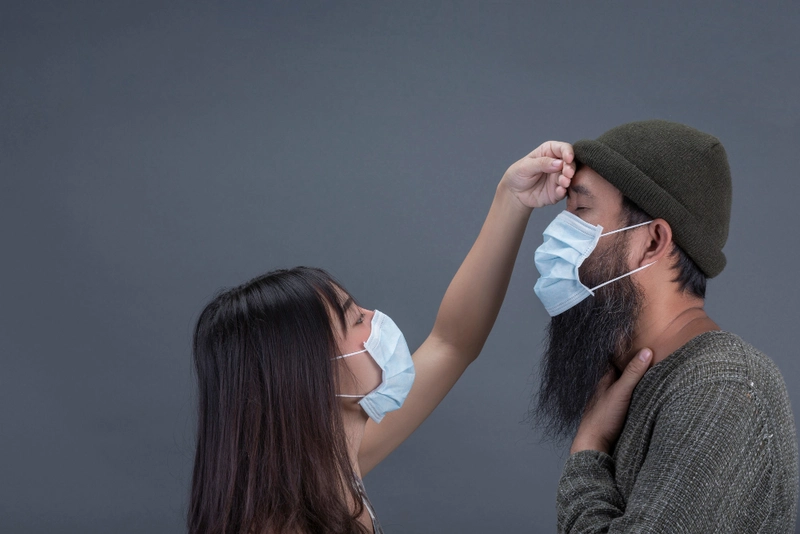- Published on: Apr 04, 2022
- 3 minute read
- By: Second Medic Expert
Everything You Need To Know About Piles
Piles is another term for hemorrhoids. Hemorrhoids are swollen veins in the lower anus and rectum. This swelling can cause localized inflammation of other tissues.
There are a few different symptoms of hemorrhoids that you may experience. First, you may notice bleeding during bowel movements. This can happen if the hemorrhoid ruptures, or if it becomes irritated and scratches the anal area. You may also see blood on toilet paper after wiping, or in the toilet bowl itself. Second, you may experience pain and/or itching in the anal area. This can be caused by the hemorrhoids themselves, or by anal fissures (tears in the skin around the anus). third, you may have swollen tissue in and around the anus. this can make it difficult to wipe after using the bathroom, or to sit down without discomfort.
There are several symptoms that can be associated with hemorrhoids. These can include bleeding from the rectum, pain, or discomfort in the anal area, itching around the anus, and lumpiness or swelling around the anus. In some cases, hemorrhoids can also lead to leakage of feces or difficulty folds clothes. If you are experiencing any of these symptoms, it is important to consult with a best doctor online as soon as possible to rule out other potential causes and get started on treatment. Treatment for hemorrhoids often includes home remedies such as increased fiber intake and sitz baths, but in more severe cases may require prescription medications or even surgery. Don't suffer in silence - get help from the best doctor today!
Hemorrhoids are typically diagnosed by a physical examination. However, if your hemorrhoids are large and causing significant discomfort, your doctor may recommend a colonoscopy or sigmoidoscopy to rule out other causes of bleeding. hemorrhoids usually first develop during pregnancy or from constipation. The increased pressure from the enlarging uterus (womb) on the rectum and anus often leads to the development of hemorrhoids. Other possible causes include inflammation in the anal area (proctitis), higher than normal levels of estrogen, genetic disposition, and weakening of the supportive tissues around the anal canal with age. Hemorrhoids are a common problem and can usually be treated with over-the-counter remedies. However, if they are causing significant discomfort or bleeding, it's best to consult a doctor.
There are a variety of different treatments for hemorrhoids, depending on the severity of the condition. Some treatments include over-the-counter medications, and lifestyle changes (such as increasing fiber intake and drinking plenty of water), and in some cases, surgery may be necessary. If you're experiencing any symptoms of hemorrhoids, it's best to consult a doctor for an accurate diagnosis and treatment plan. You can also visit Best Doctors Online to find qualified doctors in your area who can help you get relief from your hemorrhoid symptoms. Diagnosis of hemorrhoids can be tricky, as there are a variety of symptoms that can point to this problem. One of the best ways to get an accurate diagnosis is to consult with a doctor online. This way, you can provide a detailed description of your symptoms and get an expert opinion on what might be causing them.
There are a few key symptoms that are typically associated with hemorrhoids, including painless bleeding during bowel movements, itching around the anus, and swelling or protrusion near the rectal opening. If you're experiencing any of these symptoms, it's important to get checked out by a medical professional as soon as possible.
Prevention of hemorrhoids is a relatively simple process that mainly involves making lifestyle changes and consulting with the best doctors online. Lifestyle changes that can help prevent hemorrhoids include, but are not limited to, drinking plenty of water, eating fiber-rich foods, exercising regularly, and avoiding sitting or standing for long periods of time. In addition, consulting with the best doctors online can provide more specific advice on how to prevent hemorrhoids based on an individual's unique health profile. For example, some people may need to take special steps to avoid constipation while others may need to exercise caution when lifting heavy objects.
Prevention of hemorrhoids is best done by consulting with a doctor online. While there are some things you can do to help prevent hemorrhoids, such as eating a high-fiber diet and drinking plenty of water, not every preventive measure will work for everyone. That's why it's important to consult with a doctor who can help assess your risk factors and develop a prevention plan that's tailored specifically for you. Some preventive measures may include increasing the amount of fiber in your diet, avoiding constipation, using moist wipes instead of dry toilet paper, and avoiding prolonged sitting or standing.
If you're looking for information on the treatment of hemorrhoids, the best place to start is www.secondmedic.com. On our website, you'll find a wealth of resources on this topic, including articles, videos, and expert advice from medical professionals. Hemorrhoids are a common condition that can cause a great deal of discomfort and embarrassment. But there's no need to suffer in silence - there are plenty of effective treatments available nowadays. So if you're wondering how to get rid of hemorrhoids, or how to relieve the symptoms, be sure to consult our website for the latest information and guidance.
Our Services
Request A Callback
Recent Posts
Seasonal Flu vs Covid-19: 2025 Comparison
Jun 25,2025
Joint Pain in Rainy Weather – What Doctors Say
Jun 24,2025
Impact of Junk Food on Hormonal Balance
Jun 19,2025










